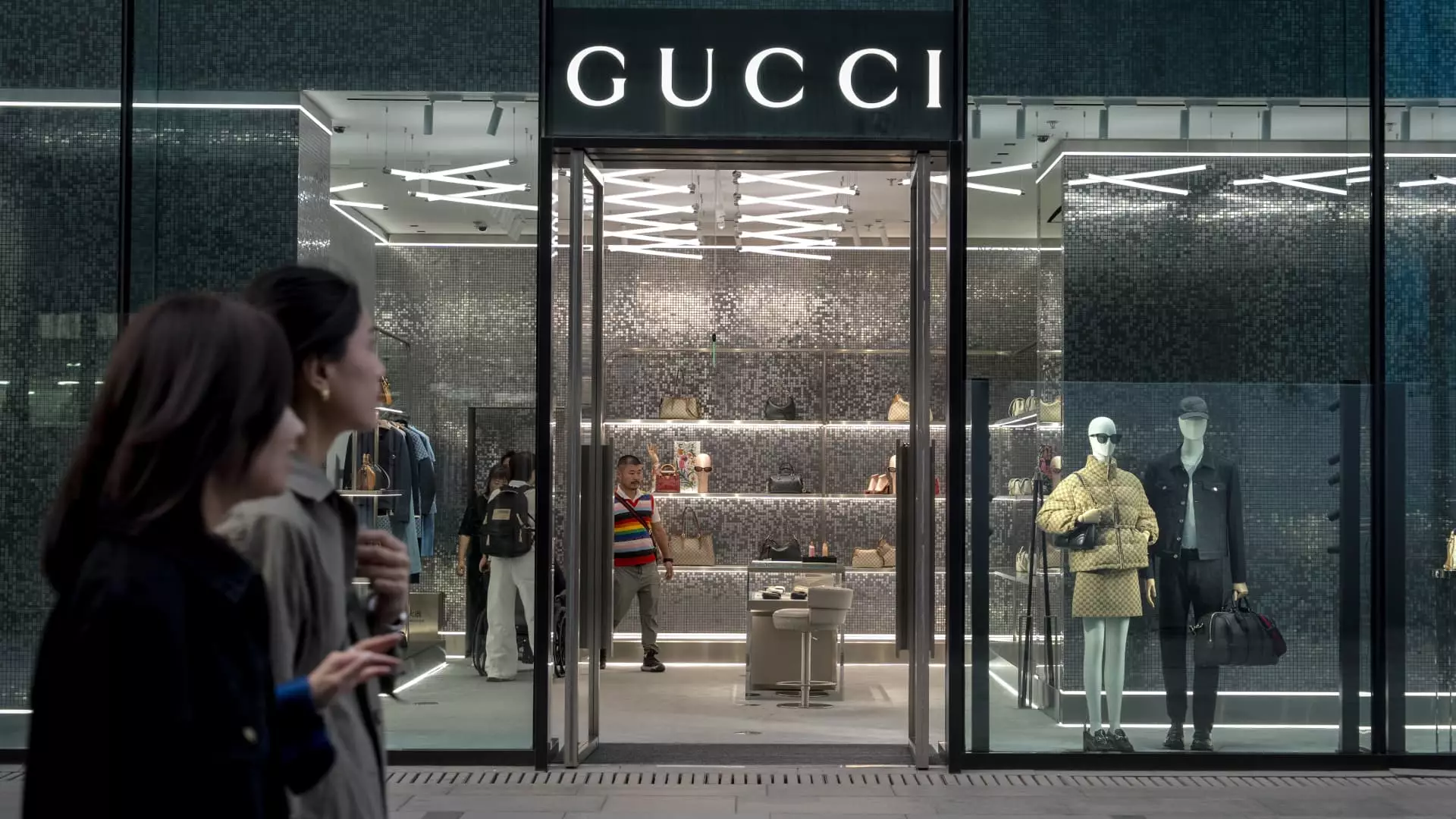On a turbulent day for Kering, the announcement of Demna Gvasalia as the new artistic director for Gucci sent shockwaves through financial markets as shares plummeted by 10.75%. The reaction was visceral, reflecting the deep anxieties laced within the luxury fashion realm. By mid-morning in London, the company witnessed one of its most significant share declines in over a decade, stirring fears about the viability of the Gucci label amidst shifting consumer preferences. Why did Kering decide to make such a bold move now? The stakes have never been higher.
Demna: A Controversial Choice
Gvasalia, who has garnered both accolades and backlash during his tenure at Balenciaga, brings a distinct, polarizing creative flair to the table. Recognized for merging streetwear with luxury, his appointment raises eyebrows. On one hand, he is hailed for innovation and risk-taking—qualities that could rejuvenate an ailing Gucci brand. Yet, his past controversies—such as the infamous ad campaign involving children and bondage elements—raise troubling questions about whether he truly aligns with Gucci’s brand ethos. Can a visionary mired in scandal adequately guide a label that once stood as a bastion of sophistication and elegance?
The State of Gucci
Gucci’s recent performance has been less than stellar, with a staggering 24% decline in annual sales in the fourth quarter. The brand, responsible for nearly 50% of Kering’s revenue, now grapples with an identity crisis. While the fashion industry is rapidly pivoting to embrace a more understated aesthetic dubbed “quiet luxury,” Gucci’s previous maximalist glory feels increasingly antiquated. The fear is palpable: has Kering miscalculated in promoting a provocative visionary like Demna during a time when restraint is being celebrated?
High Expectations and Immediate Challenges
François-Henri Pinault, Kering’s chairman and CEO, expressed confidence in Demna’s potential but the clock is ticking. With the new artistic director officially taking charge in July 2025, there is an urgent necessity for a quick turnaround. Jefferies analysts have pointed out that the brand’s upcoming presence at the September Milan fashion show is a pivotal moment for Demna. Will he be able to etch his signature in time, or will his influence be merely an afterthought until 2026? The uncertainty looms large as Kering navigates these turbulent waters.
A Reflection on Leadership and Innovation
In many ways, this appointment encapsulates the broader struggle within the fashion industry—a desperate race to stay relevant against dynamic consumer expectations. Kering is banking on Demna’s disruptive creativity to reinvigorate Gucci, but this gamble is fraught with risk. Will this center-wing liberal’s penchant for progressive aesthetics clash with Gucci’s storied past, or can it serve as a bridge to a more contemporary future? For fashion aficionados, consumers, and investors alike, the outcome remains shrouded in speculation, hinting at a larger commentary on the role of art and controversy in the evolution of luxury branding. The stakes have been raised, and all eyes are now fixed firmly on Gucci’s next chapter.

